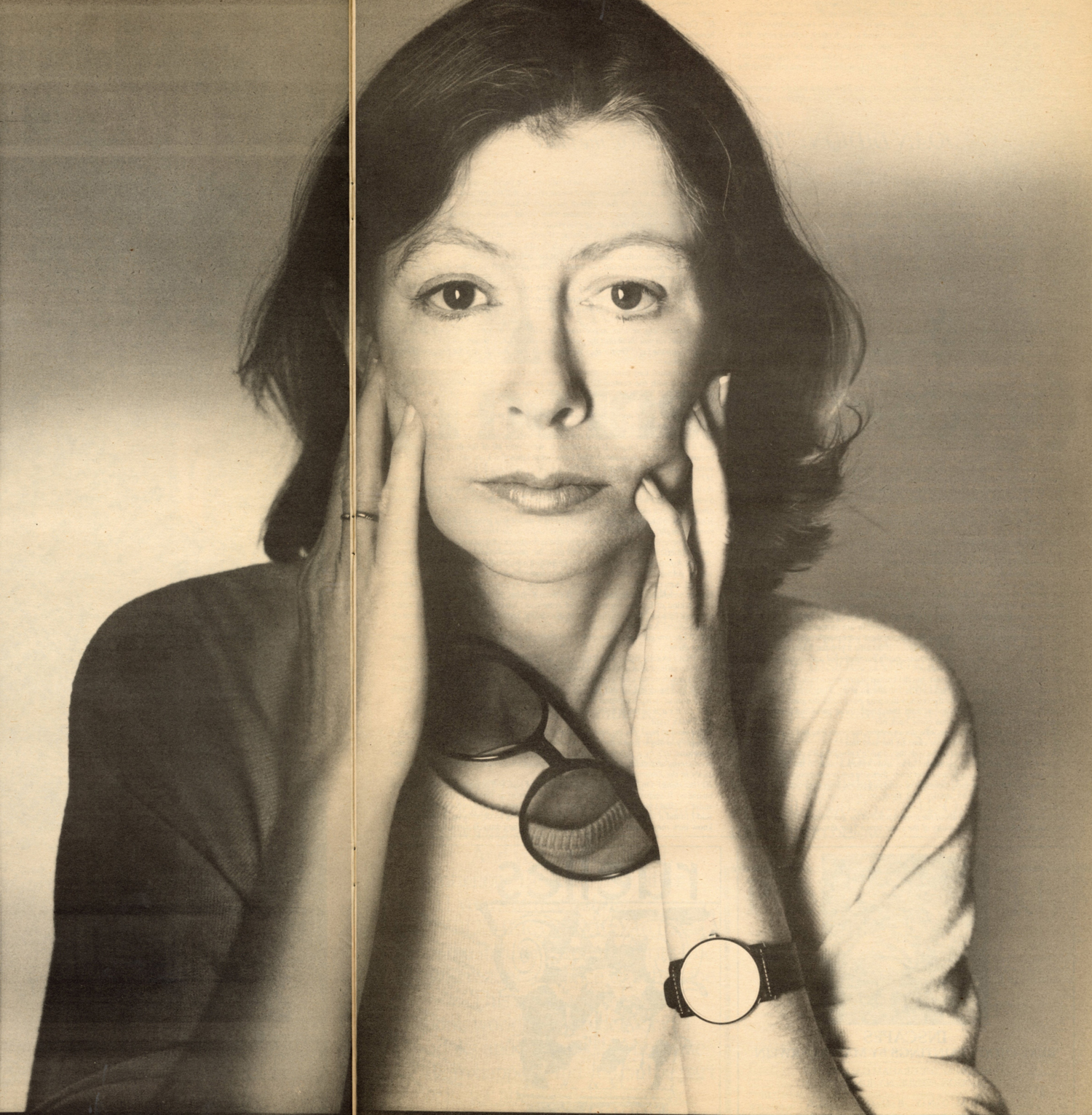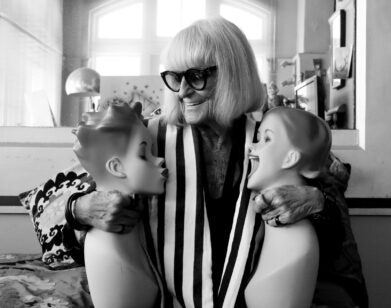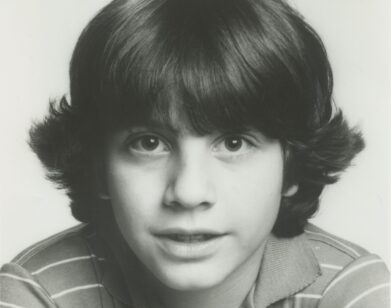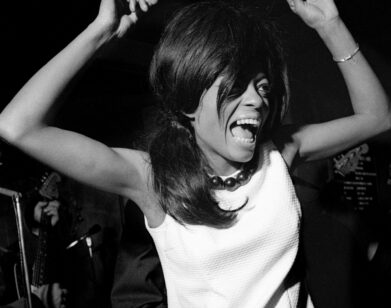legend
Ladies and Gentlemen, the Great Joan Didion
Unquestionably, Joan Didion has been the voice of a generation. Those pioneering, inveterately cool essay collections that bracketed a volatile decade, Slouching Towards Bethlehem (1968) and The White Album (1979), confirmed her crown long ago. But she has also been the voice of those who’ve followed—you can hear her concision; her taste in the spare, shimmery detail; her lean, muscular sentences; and her dogged questioning of perceived truths in every writer who has been heralded, in the intervening years, “the voice of their generation.” Didion is the model and exemplar, but she’s also just the best writer there is at melding the personal and the political, and bundling all the lit match- sticks of modern life into journalistic form.
This January, Knopf (helmed by the super-editor Shelley Wanger) is releasing a book of previously uncollected essays that the 86-year-old Upper East Sider wrote between 1968 and 2000. The 12 pieces that make up Let Me Tell You What I Mean run a range of incursions on the cultural landscape—a visit to a Gambler’s Anonymous meeting, gardening with Nancy Reagan, the portraiture of Robert Mapplethorpe, a transformative undergraduate writing workshop at UC Berkeley, the genius of Martha Stewart, and respecting the wishes of Ernest Hemingway. In Didion’s phenomenal 1976 essay, “Why I Write,” also included in this book, she candidly explains why she spends her days shuffling words around on a sheet of paper. “I write entirely to find out what I’m thinking, what I’m looking at, what I see and what it means. What I want and what I fear.” Next on the horizon is Library of America’s second collection, Joan Didion: The 1980s & 90s, a new volume of the author’s seminal reporting on Miami, Patty Hearst, and the Central Park Five. To celebrate this new wave of Didion-mania, we’ve asked the iconic writer a few simple questions supplied by our founder, Andy Warhol, from his heyday of interviewing icons.
———
ANDY WARHOL: Do you dream?
JOAN DIDION: Yes, I do, but I don’t remember my dreams.
WARHOL: Is there anything you regret not doing?
DIDION: No. I used to regret not knowing a second language, but I’ve had to let that go.
WARHOL: What was your first job?
DIDION: My first job was at a newspaper in Sacramento—I wrote for the society desk at The Sacramento Union.
WARHOL: When do you get nervous?
DIDION: I get nervous answering questions.
WARHOL: Why can’t it just be magic all the time?
DIDION: What.
WARHOL: What did you have for breakfast?
DIDION: Fruit and coffee.
WARHOL: Who’s your dream date?
DIDION: I don’t know that I have one.
WARHOL: What do you think about love?
DIDION: I don’t know.
WARHOL: What are you reading right now?
DIDION: I’m rereading Appointment in Samarra [1934] and BUtterfield 8 [1935].
WARHOL: How were you discovered?
DIDION: I won an essay contest in high school.
WARHOL: What’s the craziest thing a fan has sent you?
DIDION: A photograph of herself in my building’s lobby.
WARHOL: What are your beauty secrets?
DIDION: I don’t have any.
WARHOL: What’s your favorite movie?
DIDION: Chinatown [1974].
WARHOL: Are you interested in furniture?
DIDION: Yes. My furniture in New York is from my Franklin Avenue house in Los Angeles, and I’ve kept it since the early ’70s.
WARHOL: What kind of clothes do you like?
DIDION: I like big sweaters, pants, long skirts—loose, casual, comfortable clothes.
WARHOL: Do you have a TV?
DIDION: In fact, I have two TVs.
WARHOL; What do you love about New York City?
DIDION: Many things: my neighborhood, especially; the babies and dogs in Central Park; the places John and I used to go— Three Guys, the Carlyle, Elio’s.
WARHOL: Do you think Americans have good taste?
DIDION: Some of them do.
WARHOL: Do you keep a diary?
DIDION: No.
WARHOL: What’s your favorite color?
DIDION: I don’t have one.
WARHOL: How many hotels have you been kicked out of ?
DIDION: I’ve never been thrown out of a hotel.
WARHOL: What are you most proud of?
DIDION: In my writing, [the novel] Democracy [1984].







